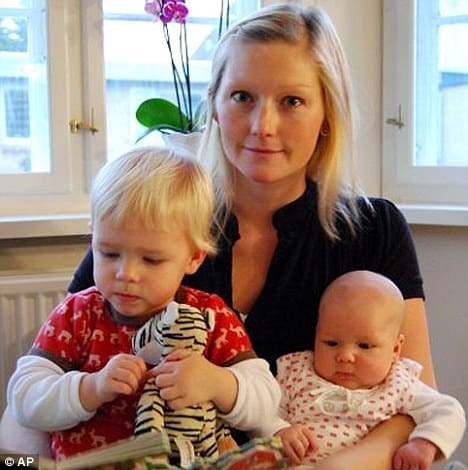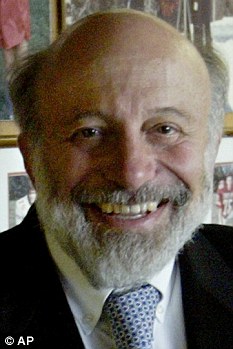
by Simon Tomlinson
Mail Online Health, March 25, 2012
‘Women will have so much choice about when to have children’
Scientists can stop menopause with ovary transplants
- Transplanted ovaries effective for at least seven years
- British women could soon choose to freeze ovaries

Women may soon be able to forgo the menopause after scientists hailed a major breakthrough in the success of transplanted ovaries.
It comes after the cases of three ladies who all conceived naturally and gave birth to seven babies after receiving ovary transplants.
Medical experts believe the technology could be as significant as the pill was in giving woman the choice about when to have children.
One of the women had her tissue fro zen and inserted back into her at a later date, while the other two received ovaries extracted from an identical twin to prevent rejection.

The results showed that transplanted ovaries could remain effective for at least seven years and raise the possibility of being able to stop the menopause and allow women to delay motherhood.
Stinne Holm Bergholt, 35, went on to give birth to three babies after chemotherapy for bone cancer left her infertile.
Before the chemotherapy, however, she had one of her ovaries taken out and transplanted back in afterwards.
Holm Bergholt, a Danish doctor, told The Sunday Times: ‘Seven years back, I had just finished chemotherapy and my body was very weak.
‘Now I have three children and I am living a normal life. It’s amazing.’
Sherman Silber, one of the lead scientists and a member of the Infertility Centre of St Louis, Missouri, said: ‘It is possible to remove a small piece of ovarian tissue, freeze it, and when the woman reaches menopause around the age of 51, we could transplant that tissue back and she might not ever have to go through menopause.’
The findings, to be published in the medical journal Reproductive Biomedicine Online, have led to plans to offer British women the option of freezing parts of their ovaries in the twenties.
Gedis Grudzinskas, a consultant gynaecologist in London, said: ‘Women will have so much choice about when and how to have children, independent of their age and the so-called biological clocks ticking away at various rates in their ovaries.’
See Also:
Video: Vitrification of Ovarian Tissue to Preserve Fertility. (7:51 min)
Video: Transplantation of frozen ovarian tissue taken 10 years earlier from a cancer patient. (9:53 min)
